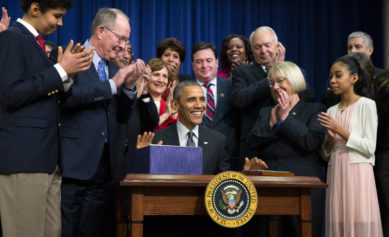
The educational achievement gap has been growing in recent years, and studies revealed that many school districts with predominantly Black and low-income students are struggling to provide their students with the type of resources that wealthier school districts provide.
Whether it’s the lack of access to quality teachers or scarce educational technology in the classroom, these schools are underfunded and under-resourced, but that isn’t stopping Georgia officials from trying to take even more money from these districts.
The proposed changes to the federal funding formula would cause Atlanta Public Schools and DeKalb County Schools to lose millions in funding, an analysis by the Washington D.C.-based Center for American Progress (CAP) revealed.

Atlanta Public Schools could lose more than $9 million and DeKalb schools could lose more than $6 million, the group told the Atlanta Journal-Constitution.
The CAP report titled “Robin Hood in Reverse” also slammed the proposal because it would take millions from two other counties that have growing populations of students from low-income households — Gwinnett County, which could lose more than $1 million, and Cobb County, which could lose more than $2 million.
In other words, the proposed change in the funding formula could have a disastrous impact on the educational success of many of Georgia’s low-income students.
The proposal would be incorporated in the reauthorization of the No Child Left Behind Act, which is formally known as the Elementary and Secondary Education Act.
The current version of this act aims to provide more funding for school districts with higher concentrations of poverty under the Title 1 provision.
The CAP claims that this new proposal would allow states to redistribute money to districts with higher concentrations of wealthy students.


